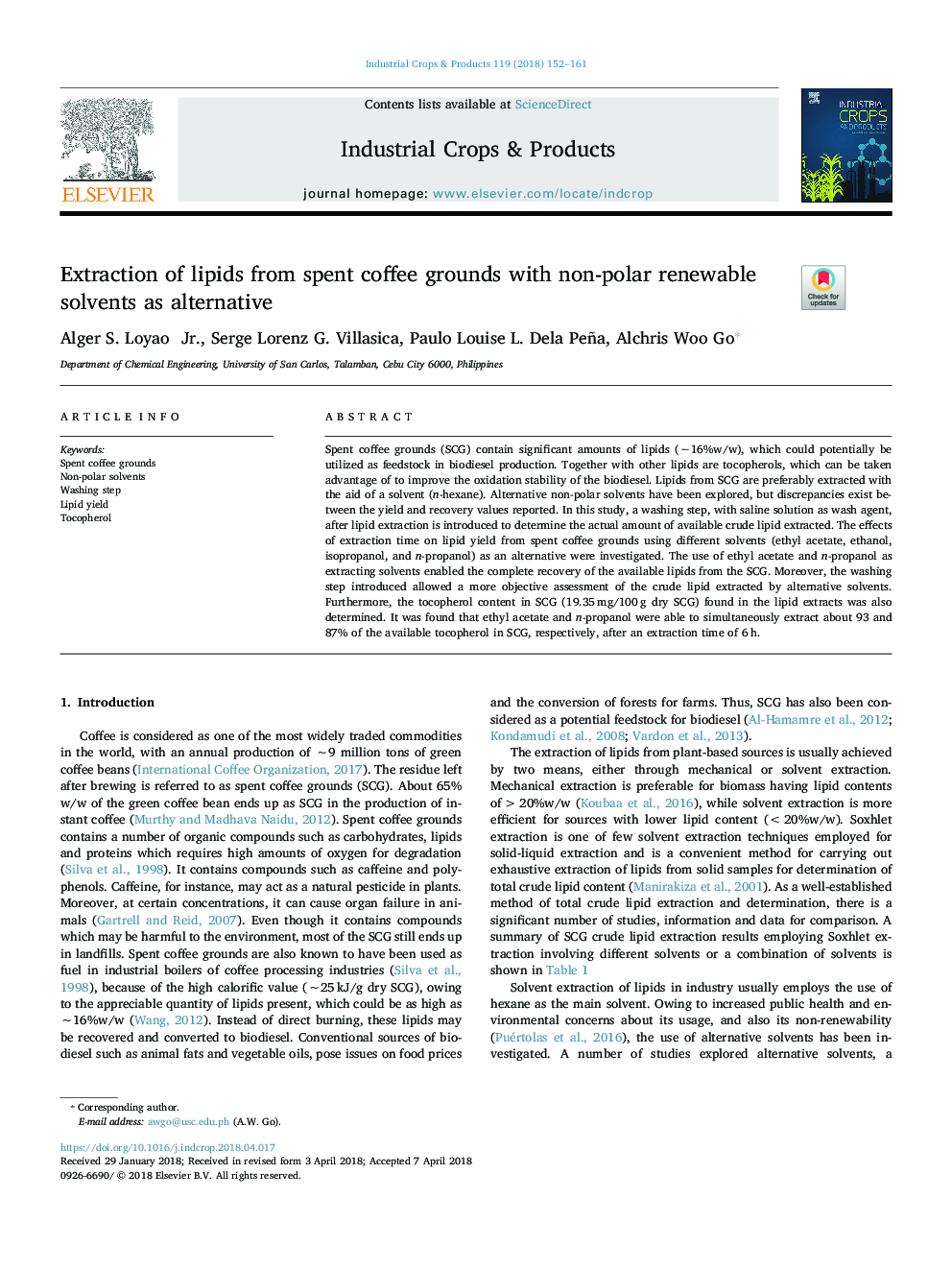| Article ID | Journal | Published Year | Pages | File Type |
|---|---|---|---|---|
| 8879952 | Industrial Crops and Products | 2018 | 10 Pages |
Abstract
Spent coffee grounds (SCG) contain significant amounts of lipids (â¼16%w/w), which could potentially be utilized as feedstock in biodiesel production. Together with other lipids are tocopherols, which can be taken advantage of to improve the oxidation stability of the biodiesel. Lipids from SCG are preferably extracted with the aid of a solvent (n-hexane). Alternative non-polar solvents have been explored, but discrepancies exist between the yield and recovery values reported. In this study, a washing step, with saline solution as wash agent, after lipid extraction is introduced to determine the actual amount of available crude lipid extracted. The effects of extraction time on lipid yield from spent coffee grounds using different solvents (ethyl acetate, ethanol, isopropanol, and n-propanol) as an alternative were investigated. The use of ethyl acetate and n-propanol as extracting solvents enabled the complete recovery of the available lipids from the SCG. Moreover, the washing step introduced allowed a more objective assessment of the crude lipid extracted by alternative solvents. Furthermore, the tocopherol content in SCG (19.35â¯mg/100â¯g dry SCG) found in the lipid extracts was also determined. It was found that ethyl acetate and n-propanol were able to simultaneously extract about 93 and 87% of the available tocopherol in SCG, respectively, after an extraction time of 6â¯h.
Related Topics
Life Sciences
Agricultural and Biological Sciences
Agronomy and Crop Science
Authors
Alger S. Jr., Serge Lorenz G. Villasica, Paulo Louise L. Dela Peña, Alchris Woo Go,
